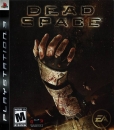| DTG said: - Story-specific gameplay, which is about features that are very story-related, but it's not optional and impacts the gameplay heavily. One example is Planescape: Torment's main character, the Nameless One, an 'immortal' which loses his identity and memory every times he dies. When the player(in control of Nameless One) dies, he doesn't lose the game, but he re-awakens with his entire memory removed. What better way to The problem is that doesn't actually explain immortality. It simply demostrates it. If you wanted to go into the philosophies of immortality, it's impliactions, nature, etc then you would need an in depth dialogue scene to explain these things. You can only demonstrate things through gameplay. To explain them you need to show it through cutscenes. The ending conversation and monologue of MGS2 couldn't have been explained through a cutscene because it was trying to impart something specific and knowledge thus language based in nature. |
You haven't played Planescape, have you? It does explain immortality, it's implications, and goes into depth for it; only the developers tried to show it naturally, and not convoluted (which is what MGS2 was like). In the beginning it is explained roughly (or rather, naturally) the immortality of the Nameless One. the player then will experience death, rebirth, loss of identity, immortality; and he will see the impact of the Nameless One's past, who he was, what he did, the evidences he left. The sporadic gain of memories from past lifes will leave the player wondering more about him, without ever having his questions fully answered.
Planescape: Torment is a masterpiece.
Words Of Wisdom said:
Obsidian Entertainment (or Bioware Jr. as I like to think of them) couldn't surpass a plate of dogpoo. KotOR2 is firm proof of this. It was like they fired all the writers and hired retarded monkeys with plungers to script a clone of KotOR1 which would work in a world without KotOR1, but playing through an entire game with the "Haven't I done this before? Haven't I met you before?" feeling is lame. |
Kotor 2 is widely recognized as having a much better story, characters and interaction than Kotor 1. The first 75% of the game is much superior than Kotor 1. The last 25% weren't good (except that last talk with Kreia) because of time constraints: Obsidian only had 12 months to make the game!
But a much better example of Obsidian's superiority is Neverwinter Nights 2: Mask of the Betrayer, which has THE best narrative in an RPG since Planescape: Torment.



















































